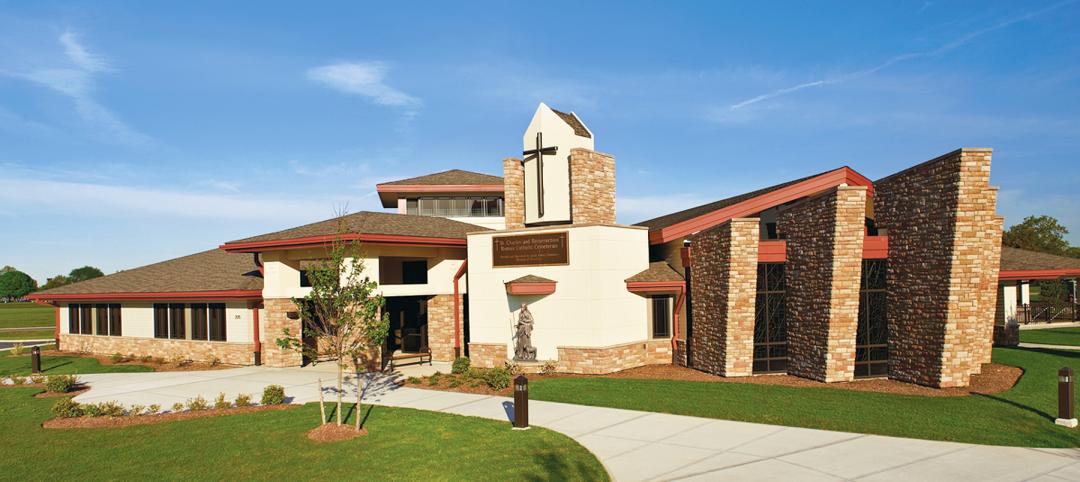Current federal contracting laws are discouraging talented architects from competing for federal contracts, depriving government and, by inference, taxpayers of the best design expertise available, according to AIA testimony presented today on Capitol Hill.
Testifying before the House of Representatives Committee on Oversight and Government Reform, Charles Dalluge, Executive Vice President of Omaha, Nebraska-based architecture firm Leo A Daly, called for reform of the design-build contracting process so that more design and architectural firms can bid on federal contracts without fear of losing money in the process.
The federal market has been a key for architecture firms’ survival in the recession, and increased competition costs have forced many firms from participating in federal contracts, Dalluge testified.
“According to a survey published by the AIA Large Firm Roundtable in 2012, between 2007 and 2011 architecture firms in teams that competed for public- and private-sector design-build projects spent a median of $260,000, by making detailed plans, models and other materials,” Dalluge said. In recent years, federal agencies have forced larger numbers of teams to compete against one another, reducing the chances that any one team can win.
“Due to the current economic climate, design firms face the dilemma of ‘betting it all’ on a contract they may not get, or self-selecting out of the federal design-build market,” Dalluge said, adding that it also costs taxpayers more money “when contracting officers spend increasing amounts of time reviewing a larger number of complicated design proposals.”
To reform the burdensome federal contracting process, Dalluge called on Congress to pass The Design-Build Efficiency and Jobs Act of 2013 (H.R. 2750), which was introduced by Rep. Sam Graves (R-MO) in July.
“H.R. 2750 requires contracting officers to provide a written justification to the head of an agency for requiring more than five finalists in the second stage of a design-build solicitation and agency approval of such justification,” Dalluge said. “H.R. 2750 will provide more certainty and opportunities for design firms of all sizes who wish to enter the federal marketplace. It will ensure that agencies have the ability to select the most qualified design-build teams who will deliver the best buildings for agencies and the public. It also will limit federal agencies’ burdens in reviewing a large number of proposals.”
About the American Institute of Architects
For over 150 years, members of the American Institute of Architects have worked with each other and their communities to create more valuable, healthy, secure, and sustainable buildings and cityscapes. Members adhere to a code of ethics and professional conduct to ensure the highest standards in professional practice. Embracing their responsibility to serve society, AIA members engage civic and government leaders and the public in helping find needed solutions to pressing issues facing our communities, institutions, nation and world. Visit www.aia.org.
About LEO A DALY
Established in 1915, LEO A DALY is an international architecture, engineering, and interior design firm. The Company’s portfolio includes award-winning projects in 87 countries and all 50 states. With over 800 employees in 30 offices worldwide, the firm ranks in the top 10 largest design firms in the United States and top 25 globally. For more information, visit www.leoadaly.com
Related Stories
| Oct 4, 2011
GREENBUILD 2011: Wall protection line now eligible to contribute to LEED Pilot Credit 43
The Cradle-to-Cradle Certified Wall Protection Line offers an additional option for customers to achieve LEED project certification.
| Oct 3, 2011
Magellan Development Group opens Village Market in Chicago’s Lakeshore East neighborhood
Magellan Development Group and Hanwha Engineering & Construction are joint-venture development partners on the project. The Village Market was designed for Silver LEED certification by Loewenberg Architects and built by McHugh Construction.
| Oct 3, 2011
Balance bunker and Phase III projects breaks ground at Mitsubishi Plant in Georgia
The facility, a modification of similar facilities used by Mitsubishi Heavy Industries, Inc. (MHI) in Japan, was designed by a joint design team of engineers and architects from The Austin Company of Cleveland, Ohio, MPSA and MHI.
| Oct 3, 2011
Cauceglia to lead Allsteel’s global accounts
Cauceglia is responsible for developing new global business strategies and expanding existing business within the Fortune 500 sector.
| Sep 30, 2011
BBS Architects & Engineers completes welcoming center at St. Charles Resurrection Cemetery
The new structure serves as the cemetery's focal architectural point and center of operations.
| Sep 30, 2011
Kilbourn joins Perkins Eastman
Kilbourn joins with more than 28 years of design and planning experience for communities, buildings, and interiors in hospitality, retail/mixed-use, corporate office, and healthcare.
| Sep 30, 2011
Design your own floor program
Program allows users to choose from a variety of flooring and line accent colors to create unique floor designs to complement any athletic facility.
| Sep 30, 2011
AAMA offers electronic technical documents with launch of virtual library
This new program offers a system for members to purchase annual licenses in order to offer electronic versions of AAMA publications in an effort to make AAMA’s technical information resources more readily available to their employees.
| Sep 29, 2011
Submit your Great Solutions
Profiles of Great Solutions will appear in December 2011 issue of Building Design+Construction.
| Sep 29, 2011
Busch Engineering, Science and Technology Residence Hall opens to Rutgers students
With a total development cost of $57 million, B.E.S.T. is the first on-campus residence hall constructed by Rutgers since 1994.
















